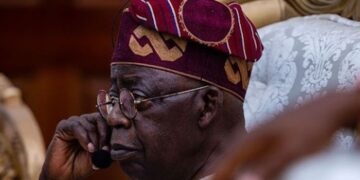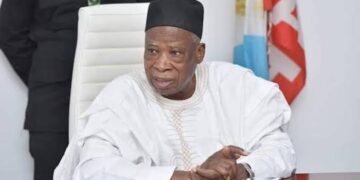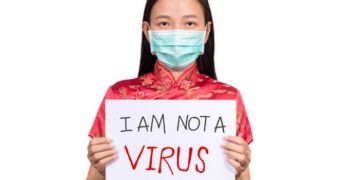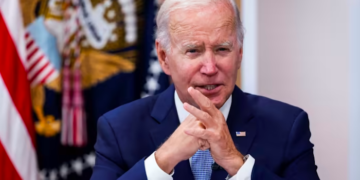Over 72.77 million active telecommunication subscribers have been barred from making calls on their SIMs, following a directive from the Federal Government to telecommunication companies.
On Monday, the Federal Government ordered telecommunications companies to enforce compliance with its National Identification Number-Subscriber Identity Module policy by restricting outgoing calls on all unlinked lines as the deadline for the verification expired on March 31.
This directive was contained in a joint statement signed by the Director of Public Affairs of the Nigerian Communications Commission, Dr Ikechukwu Adinde, and the Head, Corporate Communications at the Nigeria Identity Management Commission, Mr Kayode Adegoke.
According to the statement, 125 million SIMs have submitted their NINs for linkage, while over 78 million unique NINs have been issued. It said the deadline for the NIN-SIM linkage had been extended on multiple occasions to allow Nigerians to comply with the policy.
It stated, “Accordingly, Mr. President graciously approved the many requests to extend deadlines for the NIN-SIM linkage. At this point, however, the government has determined that the NIN-SIM policy implementation can proceed, as machinery has already been put in place to ensure compliance by citizens and legal residents.
“The implementation impacts on government’s strategic planning, particularly in the areas of security and socio-economic projections.
“President Muhammadu Buhari has approved the implementation of the policy with effect from April 4, 2022. Consequently, the Federal Government has directed all telcos to strictly enforce the policy on all SIMs issued (existing and new) in Nigeria.
“Outgoing calls will subsequently be barred for telephone lines that have not complied with the NIN-SIM linkage policy from April 4, 2022.”
The Federal Government added that subscribers yet to link their SIMs to their NINs should do so before their lines are completely restricted.
According to the NCC, there were 197.77 million active telecom subscribers as of February 2022. 125 million subscribers have submitted their NINs for verification, leaving 72.77 million subscribers on the receiving end of the Federal Government’s new directive.
A source in one of the telecom companies said the affected subscribers would still be able to receive calls, send and receive text messages, and use the Internet, in the meantime. The source added that telcos had begun to comply with the directive.
The source said, “Part of the Act that set up the NCC, by extension operators, mandates us to disconnect SIMs whenever the government tells us to do so. We are under an obligation to oblige the government when they ask us to disconnect SIMs. It is part of the Act setting us up.
“Yes, we have started complying. When the news broke today, they were yet to officially notify us, but now, the NCC has officially written us, and we have received their directive on it. We have started the implementation.
“There are two buckets to this directive, there are people who have linked their NINs to their SIMs. Do not forget that part of the reason why they kept on extending their deadline was because of the NIMC’s failure.
“NIMC has not been able to do the required integration from the backend. The telcos have done their part, but the challenge is that the NIMC does not have the means to have that firm handshake from the backend. And once the handshake is not done, it is as good as not doing any linkage. People fall into the second bucket.
“The question now is when you direct us to disconnect, who are you referring to? This is so because if we add the second pool, we will virtually disconnect everyone. For now, we are dealing with people who have not linked their SIMs to their NINs at all.”
Read Also
Train attack: Terrorists phone abducted passengers’ families, Shehu Sani faults NIN registration
SIM-NIN linkage: Consumers kick against March 31 deadline, recommend continuous registration
NIN-SIM linkage: Security agencies get Buhari’s nod to access subscribers’ details
The President of the National Association of Telecoms Subscribers, Adeolu Ogunbanjo, described the move by the Federal Government as premature.
According to him, the verification exercise needs time before the policy can be implemented.
He said, “We just woke up to the news that ongoing calls will be blocked. The minister should understand that this is too premature, premature in the sense that we started this in December 2020.
I think it should be an ongoing exercise. In case the minister now wants to put a timeline, let him meet with the operators to know how many people have been linked.
“We need to know the percentage of progress made. There was no final notice, we only had three extra days after March 31st, which is not tidy. We use these phones for our various businesses. This will collapse businesses.”
He added that with the NIMC’s issues, the policy should be rushed.
Ogunbanjo stated, “Six to 10 weeks ago, the portal broke down and there was nothing anyone could do. There are these issues.
“The government cannot close their eyes to all these issues and the challenges that the NIMC is having. The government should not cripple businesses. There is a need to extend, and not to stop the exercise. This is a premature move.”
Also commenting on the issue, Civil Society Organisations faulted the intention of the Federal Government as regards the NIN-SIM policy.
In an interview with our correspondent, the Convener, Adopt a Goal Initiative, Dare Ariyo-Atoye, said.
“We are beginning to wonder whether the communications minister has any other motive for demanding the NIN data beyond what is publicly known to Nigerians. We hope the Buhari regime is not just in a hurry to harvest our data for another use post its departure next year.
The Coordinator, Human Right Writers Association of Nigeria, Emmanuel Onwubiko, added, “As far as most Nigerians are concerned, the linkage of NIN to SIM has nothing at all to do with the objective of achieving holistic national security.
“It is a gambit by the communications minister to advance certain sinister agenda that is not connected to any of Nigeria’s national interests.”





























